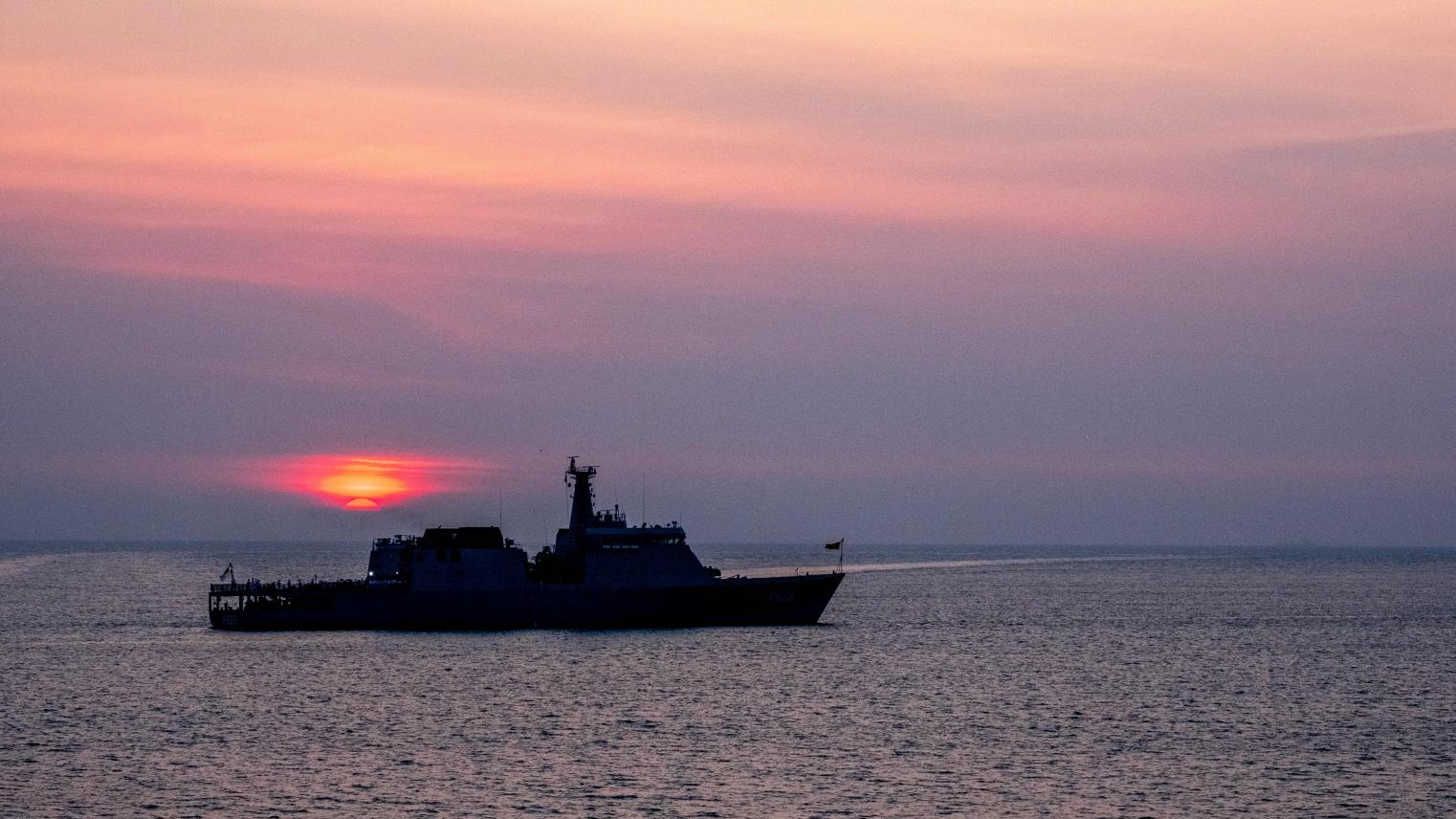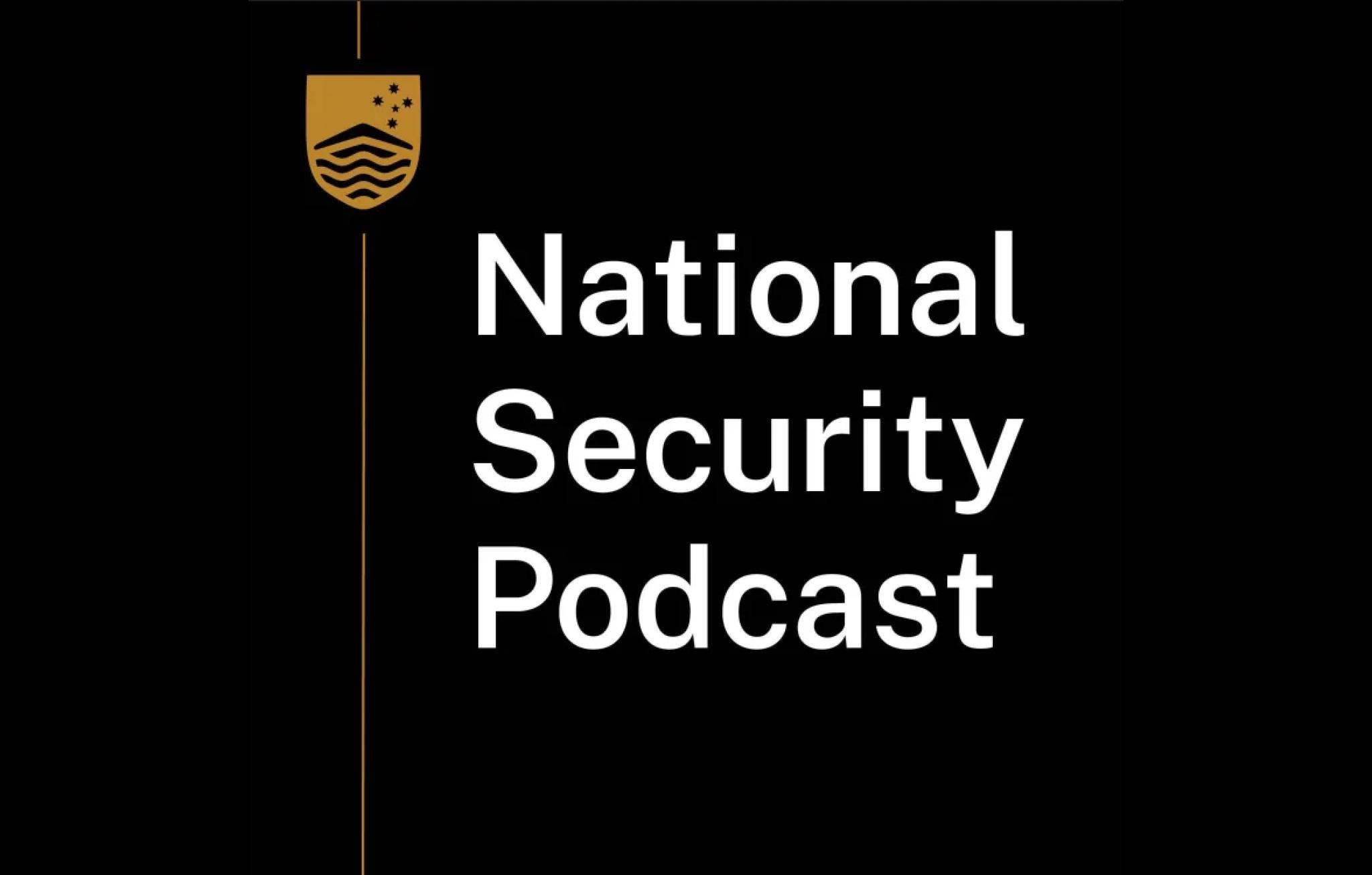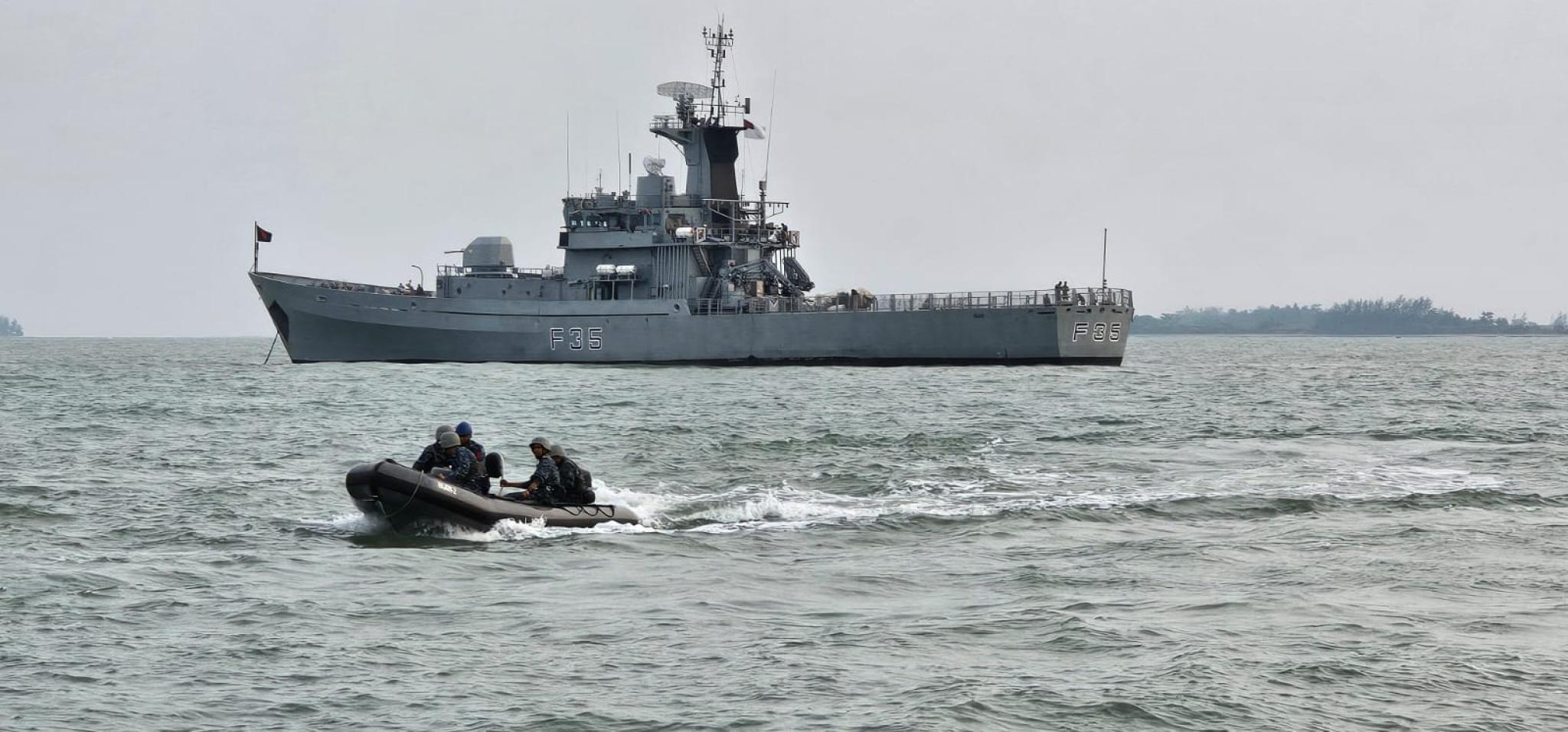Governing Sri Lanka’s maritime space

Rex Wholster, Adobe Stock
On
Executive summary and key findings
General
- Sri Lanka’s geographic location in the central-northern Indian Ocean, next to some of the world’s busiest sea lanes, has a profound impact on its maritime interests and perspectives. This creates significant economic opportunities, as well as threats to its security and the environment.
- Sri Lanka has important maritime interests that are likely to grow over the coming years, particularly in the following areas:
○ ports and maritime services
○ fisheries
○ offshore energy and resources
○ undersea infrastructure
○ tourism. - Providing services for maritime trade could be a major driver in Sri Lanka’s economic development. Colombo Port is already one of the busiest trans-shipment ports in the world and there is significant potential for further development in port and related services, including ship maintenance and repair, logistics, bunkering and other services. However, these services come with associated threats relating to maritime safety, port security and environmental risks that will become ever more important as this industry develops.
- Sri Lanka is heavily dependent on fisheries for food, economic benefits and employment. More can be done in developing Sri Lanka’s potential in the fisheries sector, including better protecting resources from illegal fishing, particularly in northern waters, as well as in improving the management and productivity of Sri Lanka’s fishing fleet.
- The maritime domain is likely to become a significant source of energy for Sri Lanka, including through offshore wind generation and, potentially, offshore oil and gas.
- Sri Lanka is highly reliant on international communications via undersea cables. There are also proposals to build an undersea electricity link and an oil and petroleum pipeline to India. These linkages are highly vulnerable to disruption.
- The tourism industry, much of it marine-based, is a major contributor to Sri Lanka’s economy. Further developing a sustainable tourism industry will depend on the country’s ability to make the ocean a safe, secure and unpolluted place and appropriately manage interactions between tourism and ports and maritime services.
Sri Lanka and maritime domain awareness
- Overall, Sri Lanka is able to achieve a good level of maritime domain awareness (MDA) despite limitedresources and the lack of a central coordinating agency.
- Many Sri Lankan agencies with responsibilities in the maritime domain, meaning effective MDA requires significant efforts in facilitating co-operation and information sharing among numerous military and civilian agencies.
- The high maritime traffic density in Sri Lankan waters make achieving effective MDA more difficult. This traffic includes numerous commercial vessels using Sri Lankan ports or the nearby sea lanes, as well as thousands of small fishing boats in nearshore areas.
- The general level of understanding about coordinated MDA as a concept among civilian agencies is gradually growing, but new mechanisms need to established to facilitate the sharing of information and coordination on maritime issues.
- Some Sri Lankan agencies that have key roles to play in the maritime domain, including the Sri Lanka Coast Guard, Fisheries and Customs, are severely under-resourced, particularly in on-water enforcement capabilities (which is entirely lacking in the cases of Fisheries and Customs).
- A lack of resources, expertise and uncertainties about its roles and responsibilities vis a vis other agencies severely limits the effectiveness of the Marine Environmental Protection Authority in protecting and responding to major environmental incidents at sea.
- The Sri Lanka Coast Conservation Department has put significant effort into developing the Coastal Zone Management Plan, the most recent of which was produced in 2024. The plan takes an integrated approach to the conservation, development and sustainment of Sri Lanka’s coastal zone.
- The United Nations Development Programme (UNDP) is assisting Sri Lanka in the development of its own Marine Spatial Plan. The Sri Lanka Navy Hydrographic Office also plans to establish a Marine Spatial Data Infrastructure (MSDI) system.
- There is no single maritime enforcement law that harmonises Sri Lanka’s existing enforcement regime and provides a comprehensive framework to enforce Sri Lanka’s laws at sea. This creates legal uncertainties, gaps and overlaps between different maritime enforcement agencies.
- Sri Lanka does not have a Civil Maritime Security Strategy that would provide a framework for interagency cooperation and guidance on key priorities.
MDA capabilities
- The Sri Lanka Navy, Sri Lanka’s leading agency with responsibility for the maritime domain, does an excellent job in achieving effective MDA given its limited resources. However, many of the Navy’s responsibilities still reflect the imperatives of the civil conflict, and some of these would be more appropriately handled by civilian agencies.
- The Sri Lanka Navy’s Information Fusion Centre (IFC) is a valuable tool for achieving MDA, although its effectiveness is limited by resourcing issues and limitations on cooperation with other government agencies.
- The Maritime Rescue Coordination Centre (MRCC), also operated by the Sri Lanka Navy, works well in practice. However, its effectiveness could be improved by developing information sharing and command and control arrangements with other Sri Lankan agencies.
- The Fisheries Monitoring Centre, operated by the Fisheries Ministry, provides effective monitoring of Sri Lanka’s multi-day fishing fleet throughout the region, including through the BluTraker VMS system provided by Australia. There is no equivalent monitoring system for Sri Lanka’s large fleet of non-multiday fishing vessels.
- Sri Lanka has posted a Liaison Officer to the Information Fusion Centre-IOR (IFC-IOR) in India, but does not have Liaison Officers posted to the Singapore Information Fusion Centre or Madagascar Regional Maritime Information Fusion Centre. There is significant room for improvement in information flows from the IFC-IOR and other regional Information Fusion Centres to Sri Lankan national agencies.
- Responsibilities for the control of hydrographic surveys have recently been reorganised under the Ministry of Defence following concerns that Sri Lanka had not maintained sovereign control over hydrographic data. This has sparked an effort to further develop sovereign hydrographic capabilities. This will likely also require developing new ways for Sri Lankan agencies to work with trusted international partners.
- Sri Lanka has a useful network of Coastal Observation Posts (COPs) that are staffed by detachments from the Sri Lanka Navy. The COPs provide convenient bases for patrolling coastal areas and some operate coastal radar and optical sensors. The COPS need to be upgraded to improve capabilities and reduce personnel costs., including new radars, optical sensors, UAVs and ATVs for transport.
- The Sri Lanka Air Force is developing a maritime aerial surveillance capability. However, further work will be required to develop surveillance, analysis and information sharing mechanisms.
- There is potential for exploring ‘crowdsourcing’ MDA solutions, (including mobile phone-based applications) using fishing and commercial vessels as the ‘eyes and ears’ of Sri Lankan agencies.
Regional and international cooperation
- Sri Lanka’s MDA cooperation with neighbouring India and Maldives is generally satisfactory, although there appears to be little operational cooperation with Bangladesh or with other Bay of Bengal countries.
- There has been some recent collaboration on fish stock assessment with Sri Lanka contributing to the Bay of Bengal-Stock Assessment Network (BOB-SAN).
- Although Sri Lanka plays an active role in the Indian Ocean Rim Association, there is little direct cooperation with key groupings/programs in the western Indian Ocean, such as the Indian Ocean Commission or the Maritime Security Programme (MASE).
- Many countries and international organisations provide assistance to Sri Lanka in building maritime security and MDA capabilities, including India, Australia, the United States, Japan, France and the UN Office of Drugs and Crime. However, coordination of these efforts is generally poor and requires improvement.
Attachments
Related content

The National Security Podcast

